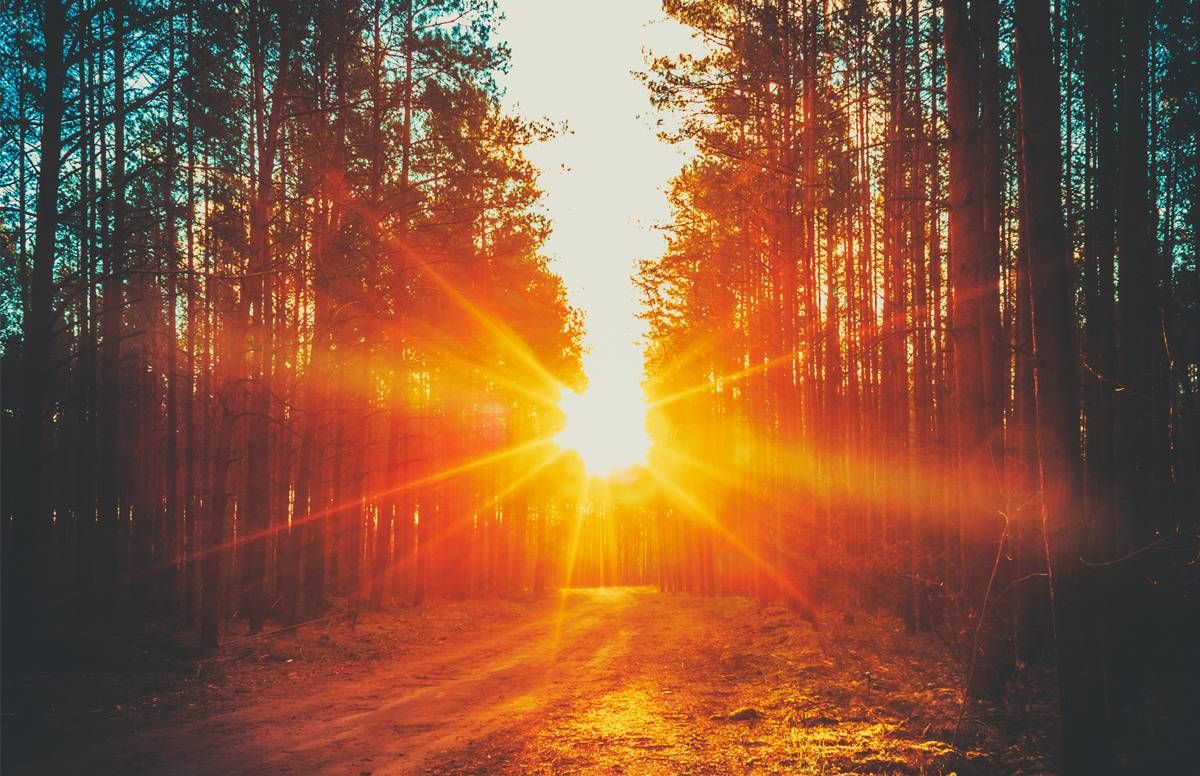Coping With the Dread Unleashed by COVID-19
A heightened sense of fear and anxiety permeates daily life now
I don't think of myself as a fearful person. Yet, I'm coming to realize that I've been living with a sense of dread for some time now.

I can't pinpoint when this particular fear first took hold. An obvious starting point would be the summer day in 2017 that my husband fell while biking and suffered a concussion. Certainly, the sight of Bob, then 68, sprawled on the ground, out cold, stirred a palpable fear that I could lose him.
But was that fear already slumbering inside me, on the lookout for any excuse to be aroused? Was it there the evening in 2010 that I sat in a Chinese restaurant, across the table from a stranger named Bob whom I'd recently met online, and sensed the potential for a new life not centered on the grief I'd been carrying since the death of my first husband, Joe?
In the moment that Bob reached across the table and placed his hand on top of mine, did a companion fear take root, one that warned, "You could lose this one, too?"
I don't know. What I do know is that since Joe's death, followed in rapid succession by the burials of my sister, mother and mother-in-law, I've been keenly aware that you can lose the people you love.
It is a dread that many people, particularly older people, are living with these days as the capriciousness of the COVID-19 virus batters all of our lives. While I have no data to back it up, I'd be willing to wager that for those, like me, who have already experienced the grief of losing a loved one, the fear is even more pronounced.
Once death crosses your threshold, you can no longer convince yourself that the worst can't or won't happen.
Impermanence, as Buddhist teachings stress, is a fact of life. As an intellectual exercise, sure, we all get that. You live for a time. Then you die.
But to really know the meaning of that impermanence? For that, I think, you need to have experienced the loss of someone you love. Someone you counted on to be there the next day. Someone whose absence will be felt every one of your remaining days.
Imagining the Unimaginable
Once death crosses your threshold, you can no longer convince yourself that the worst can't or won't happen. You know that it can and it might. You know that telling yourself everything will turn out alright requires an innocence that you no longer possess. Though I am well aware that my fears are likely overblown, I no longer possess the ability to not imagine the unimaginable.
At the same time, I'm aware that not all circumstances ignite my dire imaginings. Take this COVID thing, for instance. Sure, I get that it's potentially deadly. Sure, I socially distance and wear a mask in public. Sure, I worried plenty when my daughter contracted a case, then my sister-in-law, a nephew and one of my closest friends.
Awful, to be sure. But not awful enough to summon images of ventilators and body bags. Each of those people is fit. Each of them is well under 70. And each of their cases was blessedly mild — as were my imaginings.
By contrast, when Bob grew fatigued and ran a low-grade fever back in March, my fears ran rampant. At 71, he seemed a sitting duck for the worst of whatever this mystery virus — if that's what it was — had to offer.
We got lucky. After about 10 days, the symptoms evaporated.
Old Fears Resurface
My fear has not.
Recently, the feeling was kicked back into high gear by difficulties Bob is having with his balance. It could be connected to feet issues he's had since childhood. It could be a byproduct of that 2017 concussion. It could be the toll of aging. Or it could be something far more innocuous, say, an ear infection.
Yet a persistent fear of losing him slumbers beneath the surface, eager for any excuse to revive. He faltered on a step! He forgot a word! He took a nap! Never mind that for the 11 years I've known Bob, stairways have never been his friend. Never mind that I forget words all the time, too. Never mind that Bob is entitled to take a nap.
Don't let your world shrink to only worry and dark rumination about illness.
Bob is (or professes to be) calm about all of this. He regards his symptoms as a puzzle in need of solving. Good civil engineer that he is, he wants to assemble all the pieces, take a hard look, then deal with whatever emerges. He isn't (or professes not to be) worried. If these mystery symptoms add up to something deadly, well, he's had a good run.
All of that leaves me where I was on the day Joe checked into the hospital for his first chemo treatment.
"I'd rather be where you are," I said, pointing to the bed. "I'd rather be facing the possibility of going."
"Why?" Joe said, his expression startled.
"Because for you, if you go — " I shrugged. "Well, then you're gone. But me? I'll have to reimagine my whole life. And that terrifies me."
It was an honest statement then. It's an honest statement now. Yes, I survived Joe's death. Yes, I moved forward into a very different, but very wonderful life. But what hasn't changed in the intervening 11 years is my fear of being left to face the rest of my life alone.
Instead, it has been lying in wait to test my strength and resolve yet again.
Acknowledge Anxiety and Fear
As Bob and I embark on our quest for a diagnosis — the cause of balance issues can be tricky to pinpoint — I find myself resurrecting the lessons I learned during the almost three years that Joe and I dealt first with putting a name to his mystery ailment (leukemia), then with the fallout from chemo treatments and the stem cell transplant that followed:
- Take it one day, one hour, if need be, one minute at a time.
- Remain connected to the other parts of your life.
- Don’t let your world shrink to only worry and dark rumination about illness.
After years of mindfulness practice, I'm adding a new one to the list:
- Acknowledge the fear; don’t deny or resist it.
As Buddhist monk Sayadaw U Tejaniya noted in an interview with Tricycle magazine that focused on handling the negative emotions aroused by COVID-19, "I cannot prevent the mind from having fear or anxiety. They will arise. But my view is, 'This is natural for the mind in this situation.'"
Tejaniya goes on to say, "The worst thing that you could possibly do is to think, 'How can I get rid of this?' The desire to not have anything bad happen at all is exactly what causes anxiety and fear to arise." By contrast, he advises, acceptance of these emotions can help to settle the mind.
It's a tall order. I'm working on it.


